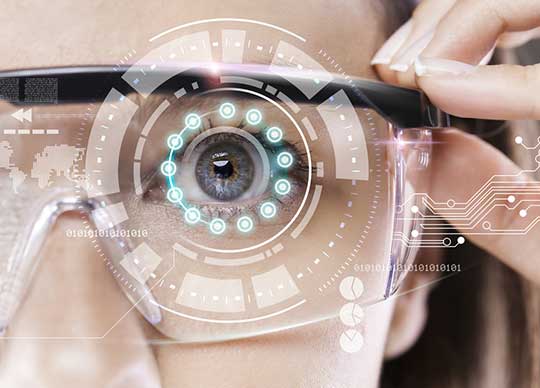Tech Innovation Shaping the Future
Technology has been the driving force behind human progress for centuries, but the pace of innovation in the 21st century is unprecedented. From artificial intelligence to quantum computing, the advancements we are witnessing today are not only transforming industries but also reshaping how we live, work, and interact with the world. In this article, we explore the most significant technological innovations of our time, their current impact, and the exciting possibilities they hold for the future.
Artificial Intelligence: The Brain of Tomorrow
Artificial Intelligence (AI) is at the forefront of technological innovation, revolutionizing industries ranging from healthcare to finance. AI systems, powered by machine learning and neural networks, can analyze vast amounts of data, recognize patterns, and make decisions with a level of efficiency that surpasses human capabilities in specific tasks. For instance, AI-driven diagnostic tools in healthcare are now capable of detecting diseases like cancer with greater accuracy than traditional methods.
The applications of AI are vast. In the automotive industry, self-driving cars rely on AI to navigate complex environments, reducing the likelihood of accidents caused by human error. In retail, AI-powered recommendation systems personalize shopping experiences, boosting customer satisfaction and sales. Moreover, AI is enhancing creative fields, with tools generating art, music, and even literature, raising fascinating questions about the intersection of technology and human creativity.
AI is expected to contribute over $15 trillion to the global economy, according to a report by PwC. However, AI also poses challenges. Ethical concerns, such as bias in algorithms and the potential for job displacement, are critical issues that society must address. Ensuring that AI systems are transparent, fair, and aligned with human values will be essential as this technology continues to evolve.
Quantum Computing: Unlocking New Possibilities
While classical computers rely on bits to process information in binary (0s and 1s), quantum computers use quantum bits, or qubits, which can exist in multiple states simultaneously. This allows quantum computers to perform complex calculations at speeds unimaginable with today’s technology. Companies like IBM, Google, and startups like Rigetti are racing to build scalable quantum systems that could revolutionize fields like cryptography, drug discovery, and materials science.
One of the most promising applications of quantum computing is in drug discovery. Simulating molecular interactions at the quantum level could significantly reduce the time and cost of developing new medications. Similarly, quantum computers could optimize supply chains, solve complex logistical problems, and enhance cybersecurity by breaking or creating encryption methods that are currently considered unbreakable.
Despite its potential, quantum computing is still in its infancy. Challenges such as error rates, qubit stability, and the need for extreme cooling environments mean that practical, large-scale quantum computers are still years away. Nonetheless, the progress being made suggests a future where quantum computing could redefine what is computationally possible.
The Internet of Things: A Connected World
The Internet of Things (IoT) refers to the network of interconnected devices that communicate and share data over the internet. From smart thermostats in homes to industrial sensors in factories, IoT is creating a world where devices work together to improve efficiency and convenience. In 2025, it’s estimated that over 75 billion devices are connected worldwide, generating massive amounts of data that drive innovation.
In smart cities, IoT enables real-time traffic management, reducing congestion and pollution. In agriculture, IoT sensors monitor soil conditions, weather patterns, and crop health, allowing farmers to optimize yields with precision. In healthcare, wearable devices track vital signs, enabling early detection of health issues and personalized treatment plans.
However, the proliferation of IoT devices also raises concerns about privacy and security. With billions of devices connected, ensuring robust cybersecurity measures is paramount to prevent data breaches and protect user privacy. Innovations in encryption and decentralized networks are being developed to address these challenges, but the race between security and threats continues.
Renewable Energy and Sustainability Tech
As the world grapples with climate change, technological innovation in renewable energy is playing a pivotal role in creating a sustainable future. Solar and wind energy have become more cost-competitive, thanks to advancements in materials science and energy storage. Next-generation batteries, such as solid-state and lithium-sulfur batteries, promise higher energy density and faster charging times, making renewable energy more reliable.
Beyond energy production, technology is enabling sustainability in other ways. For example, precision agriculture uses AI and IoT to minimize water and pesticide use, while carbon capture technologies are being developed to remove CO2 from the atmosphere. These innovations are critical to achieving global climate goals, such as those outlined in the Paris Agreement.

Fun fact: In 2024, solar energy accounted for 5% of global electricity production, a figure expected to double by 2030.
However, scaling these technologies requires significant investment and policy support. Governments and private sectors must collaborate to accelerate the adoption of sustainable technologies and ensure equitable access to their benefits.
Biotechnology: Redefining Life
Biotechnology is another frontier of innovation, with breakthroughs in gene editing, synthetic biology, and personalized medicine. CRISPR-Cas9, a revolutionary gene-editing tool, has made it possible to precisely modify DNA, offering potential cures for genetic disorders and enhancing agricultural productivity. For example, genetically modified crops can resist pests and adapt to changing climates, addressing food security challenges.
In healthcare, biotechnology is enabling personalized medicine, where treatments are tailored to an individual’s genetic makeup. This approach is already transforming cancer treatment, with therapies designed to target specific mutations in a patient’s tumor. Additionally, synthetic biology is creating new possibilities, such as engineering microbes to produce biofuels or biodegradable materials.
Ethical considerations are paramount in biotechnology. The ability to edit the human genome raises questions about designer babies, inequality, and unintended ecological consequences. Regulatory frameworks must evolve to balance innovation with safety and ethical concerns.
The Metaverse and Immersive Technologies
The concept of the metaverse—a virtual, interconnected universe—has gained traction as advancements in virtual reality (VR), augmented reality (AR), and mixed reality (MR) converge. Companies like Meta, Microsoft, and Apple are investing heavily in creating immersive digital environments for work, entertainment, and social interaction. The metaverse could redefine remote work, education, and even social connections.
For example, VR training simulations are being used in industries like aviation and healthcare to provide realistic, risk-free environments for skill development. AR is enhancing retail by allowing customers to visualize products in their homes before purchasing. As 5G and edge computing improve connectivity and reduce latency, the metaverse is becoming more accessible and seamless.
However, the metaverse also raises concerns about digital addiction, privacy, and the digital divide. Ensuring that these technologies are inclusive and do not exacerbate existing inequalities will be a key challenge for developers and policymakers.
Space Exploration: The Next Frontier
Space exploration is experiencing a renaissance, driven by private companies like SpaceX, Blue Origin, and Rocket Lab. Innovations in reusable rockets, satellite technology, and space habitats are making space more accessible than ever. SpaceX’s Starship, for instance, aims to reduce the cost of space travel, paving the way for lunar bases and missions to Mars.
Space technology also has terrestrial benefits. Satellites provide critical data for weather forecasting, climate monitoring, and global communications. Advances in space-based solar power could offer a new source of clean energy, beamed directly to Earth. Additionally, the potential for asteroid mining could provide rare minerals essential for advanced technologies.
The commercialization of space raises questions about governance and resource allocation. International cooperation will be essential to ensure that space remains a shared frontier for humanity’s benefit.
The Future of Work: Automation and Upskilling
Technological innovation is reshaping the workplace, with automation and AI taking over repetitive tasks, allowing humans to focus on creative and strategic roles. However, this shift requires significant upskilling and reskilling efforts to prepare the workforce for new opportunities. Online learning platforms, powered by AI, are making education more accessible, offering personalized learning experiences tailored to individual needs.
Hybrid work models, enabled by collaboration tools and cloud computing, are becoming the norm. These technologies allow teams to work seamlessly across geographies, improving productivity and work-life balance. However, they also highlight the need for robust cybersecurity and equitable access to technology.
Conclusion: Embracing the Future
Tech innovation is not just about creating new tools; it’s about reimagining what’s possible. From AI and quantum computing to biotechnology and space exploration, these advancements are solving some of humanity’s greatest challenges while opening new frontiers. However, with great power comes great responsibility. Ethical considerations, equitable access, and sustainability must guide the development and deployment of these technologies.
As we stand on the cusp of a new era, the choices we make today will shape the future. By fostering collaboration between governments, industries, and communities, we can harness the power of technology to create a world that is more connected, sustainable, and inclusive. The journey of innovation is far from over—it’s just beginning.






